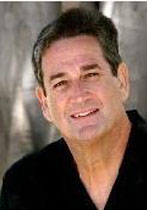By Rabbi Ben Kamin

SAN DIEGO –Sometime in the blistering heat of 1965, while Martin Luther King, Jr. and his allies were marching for the nation’s first inclusive voting rights bill, a wiry, feisty, articulate Baptist minister stood up to the condescending white sheriff of Dallas County—which encompasses Selma, Ala. Rev. Cordy Tindell Vivian, better known as “C.T.,” was 41 years old at the time, a local pastor gifted with vision, strong loins, and indisputable courage.
The tall, bulky white Sheriff Jim Clark, viscerally racist, stood in the doorway of the county voter registration building and (along with a bevy of his deputies) taunted C.T. Vivian and a crowd of blacks who—nonviolently and peacefully—demanded the right to enter and register. Of some 15,000 African Americans living in Dallas County at the time, only about 300 were catalogued with the most basic democratic entitlement—the ballot.
The scene was captured for posterity by an alert television news crew. Rev. Vivian, a good-looking, forceful man with a strong instinct for history, demanded that he and his friends be allowed to enter the building and sign up to vote. He spoke directly and compellingly to the uniformed man wearing a gun and holding a nightstick. The officer pushed C.T. back; the preacher came back and continued to demand access in the name of the Constitution and humanity. C.T. Vivian was abruptly clubbed across the face and began to bleed but that did not prevent him from remaining at full height and vehemence until the rally was brutally dispersed.
This was but one moment in an episodic, history-bending lifetime for this now 87 year-old and still vigorous man; there were lunch-counter sit-ins he led as part of the “Nashville Movement,” perilous Freedom Rides, and the dangerous and daunting march from Selma to Montgomery that began with “Bloody Sunday.” But the grainy clip of C.T. Vivian confronting the sheriff at the voting booth center became and remains iconic. It is featured in the award-winning Eyes on the Prize documentary miniseries.
This past Saturday night, while attending the 20th Anniversary celebration of the National Civil Rights Museum at the Lorraine Motel in Memphis, I bumped into Rev. C.T. Vivian. He was one of the honorees that included Rev. James Lawson, Cicely Tyson, Bill Russell, and Usher. Convivial, hearty, still so handsome, he reached out to me unreservedly and without affect. (Some of the honorees were a bit smitten with themselves, their real achievements notwithstanding). I took the liberty of offering condolences on his recent loss of his wife of many decades, Octavia, of blessed memory.
C.T. took my hands and broke into tears. “You have no idea how much it hurt, to have found her dead in our home,” said the sweet pastor. He then told me of his strong feeling that “clergy need other clergy to talk about our own pain.” He instantly became not a hagiographic figure but just a colleague in the business of human life. We exchanged phone numbers and promised to keep in touch.
History is changed by the step-by-step of men and women and the heartbeats of unheralded heroes.
*
Rabbi Kamin is a freelance writer based in San Diego. He may be contacted at ben.kamin@sdjewishworld.com